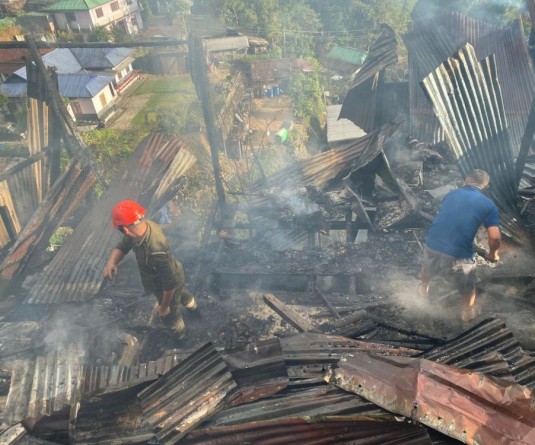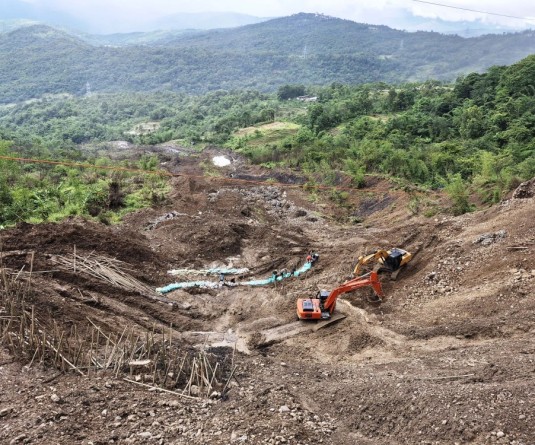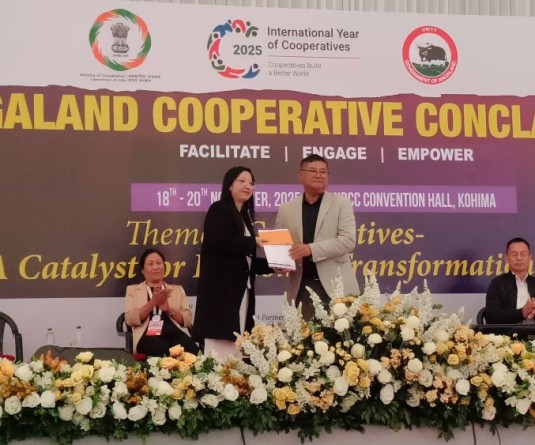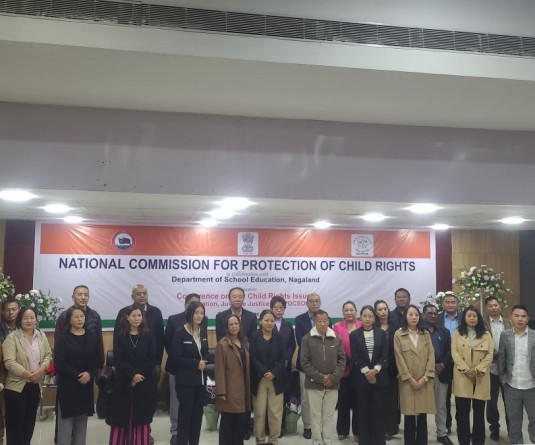
In 18 months 560 persons arrested for smuggling IMFL & drugs in Nagaland
Morung Express News
Kohima | June 26
Since 2016, 560 persons have been arrested for smuggling liquor and banned drugs in Nagaland state, and 427 cases have been registered.
The amount of drugs seized during this period include 9711 kgs of Ganja, 63 kgs 75 gms of Opium, 12gms of Heroin, 4 kgs 575 gms of Brown sugar, 1 kg of Yaba, 527,626 capsules of Spasmo Proxyvon, 8484 tablets of Nitrgogen, 3 tablets of Diaszepam and 12, 297 bottles of cough syrup. Further, 202,9191 bottles of IMFL were also seized.
This was informed by K Mero, IGP, Crime (PHQ), Nagaland Police on June 26 during the observation of the International Day against Drug Abuse and Illicit Trafficking in Kohima at Hotel Japfu.
“The social and ethical breakdown that the society is going through, the lack of discipline in all levels of society and the urge to get easy money are all fertile grounds for drug dealing and usage,” he said.
Nagaland is used as a conduit route for drug traffickers due to its close proximity to the Golden Triangle, especially with Myanmar.
However this may just be the tip of the iceberg. “With the expertise that we have or with the lack of it, including the lack of will to really search and eliminate trafficking, the quantity detected and seized may just be the tip of the iceberg. Much more must be crossing the state –the ready and processed products as well as the raw materials including the chemicals that are needed for such processing. Yet we do not have the manpower, the gadgets and the knowledge to identify and detect such materials. The police department itself has a lot to invest on,” Mero said.
Mero also criticized the complacency of citizens towards drug trafficking and usage. He cautioned that “a day may soon come when that complacency will be shattered and we suddenly realize that our state is not only conduit but is also a big user.” This, Mero explained, is because the situation in Nagaland is ripe for drug pushers to take advantage of and pull in susceptible children, gullible youths and greedy adults into the vortex of drug addiction and trafficking.
He also noted that of late, the drug scene in the state is slowly beginning to change. Not only is the state being used as a route for trafficking but the local people in the state are slowly and discreetly turning to cultivation of especially cannabis, Mero informed. The danger lies, according to him, in the “indifferent attitude i.e. the lack of shock in learning of such crops being grown and trafficked in the state.”
Mero meanwhile acknowledged that the people involved in the detection and seizure of contrabands can also be vulnerable to easy money that these goods could bring them. “There is always a danger that we the police and the judiciary who handle these substantial quantities of highly dangerous and destructive drugs are exposed to the means to make a fast buck by manipulating and misusing the authority thrust on us.”
He pointed to the need for effective checks and balances to see that substantial quantities do not go back into the circuit again, and further appealed to NGOs to be more responsible and vigilant in monitoring the seizures and their eventual disposal as per law.
Meanwhile it was also informed that the Regional Resource & Training Centre North East 2 (Kripa Foundation Nagaland) will head the National survey on Substance use in Meghalaya, Nagaland and Arunachal Pradesh, with technical support from AIIMS, New Delhi.
This was announced by Abou Mere, who mentioned that the study will help understand the magnitude and proportion of the Naga population using substances and the response in addressing its impact.
The survey will also look into the gaps in policies and programs for drug demand and harm reduction in the national level as well as state level. Therefore Mere requested the selected district administrators, Village Councils and all partners to help the research team to collect necessary information and data.
In Nagaland, the survey will cover Dimapur, Peren, Phek, Tuensang and Wokha.






